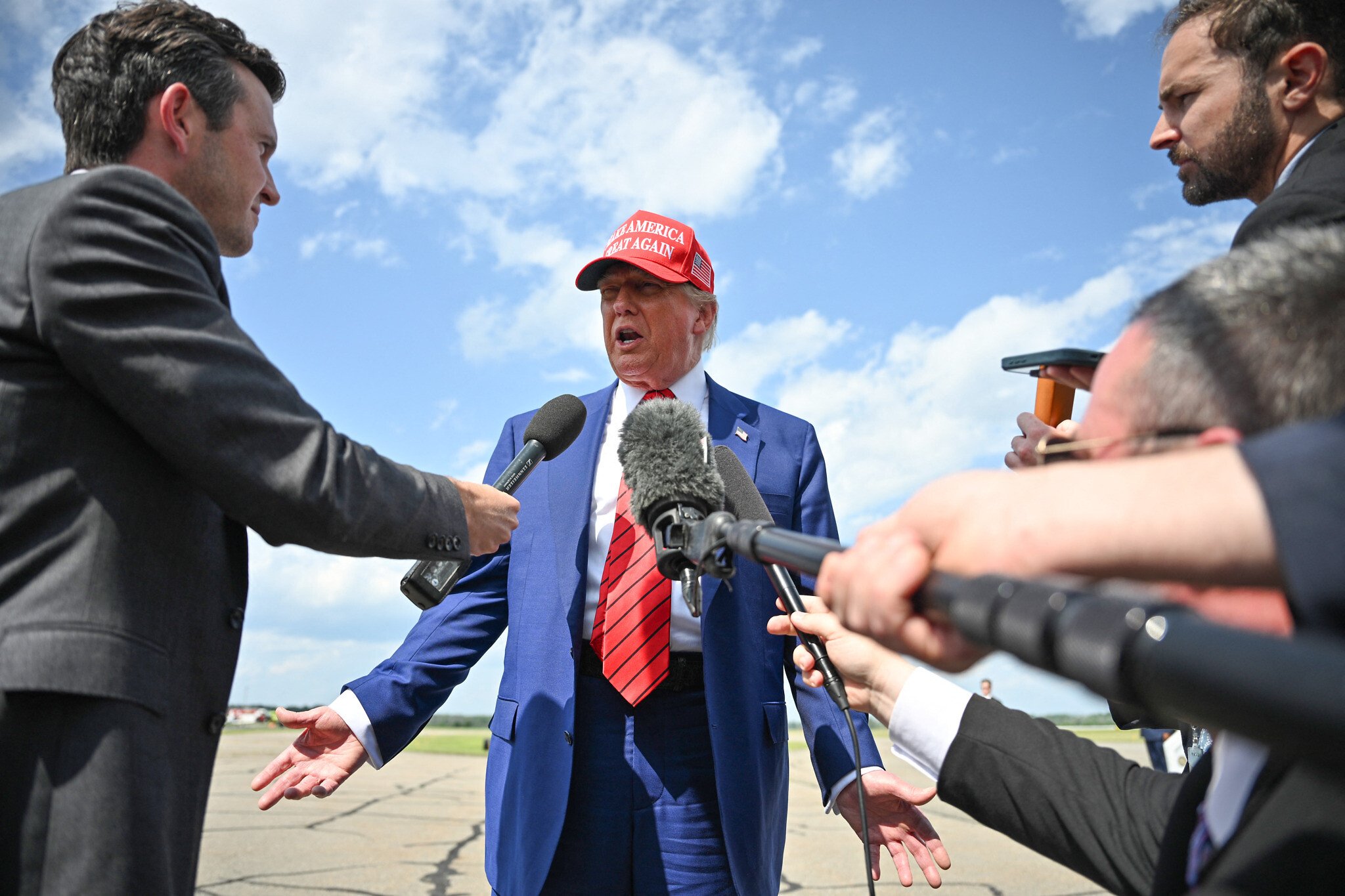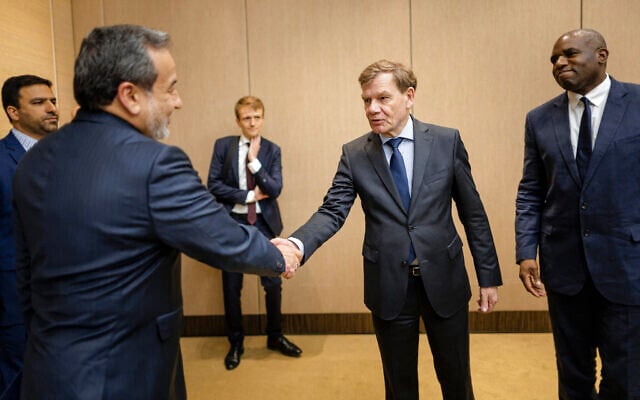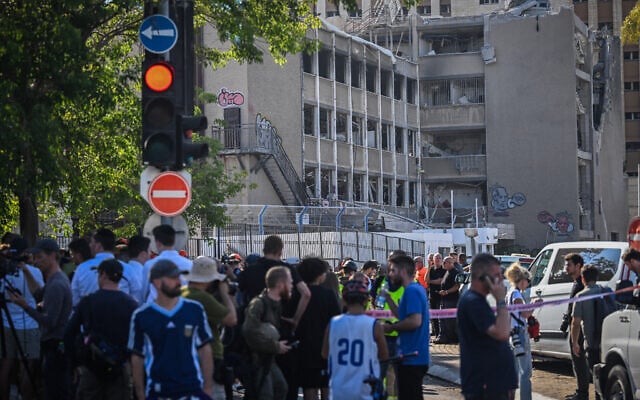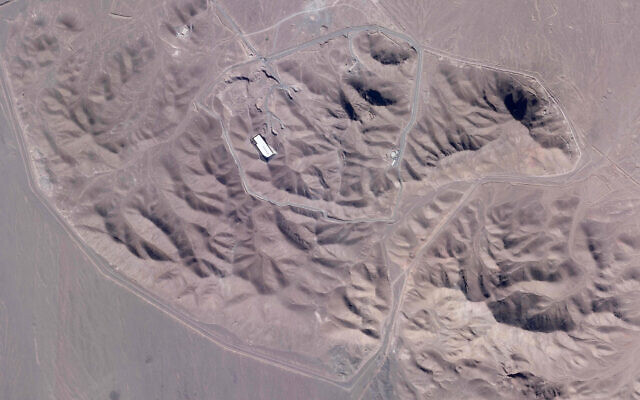



US President Donald Trump indicated Friday that he was disinclined to ask Israel to halt its strikes against Iran, despite Tehran’s foreign minister asserting that his country would not hold nuclear talks with Washington as long as Israel’s offensive across the Islamic Republic continued.
“I think it’s very hard to make that request right now,” Trump told reporters. “If somebody is winning, it’s a little bit harder to do that [than] if somebody’s losing. But we’re ready, willing and able, and we’ve been speaking to Iran.”
“Israel is doing well, in terms of war, and… Iran is doing less well. It’s a little bit hard to get somebody to stop,” he added.
Earlier Friday, Iranian Foreign Minister Abbas Araghchi said there was no room for negotiations with the US “until Israeli aggression stops,” referencing the weeklong IDF strikes aimed at neutralizing threats posed by the Islamic Republic’s nuclear and ballistic missile programs.
But Araghchi later arrived in Geneva for talks with European foreign ministers, which Europe hoped could establish a path back to diplomacy.
Trump was very dismissive of the European effort when asked about it by reporters upon landing in New Jersey.
“They didn’t help. Iran doesn’t want to speak to Europe. They want to speak to us. Europe is not going to be able to help in this,” Trump claimed.
The US president said he will “always [be] a peacemaker,” but “sometimes you need some toughness to make peace.”
As for the prospect of sending in US ground troops to fight against Iran, Trump told reporters, “That’s the last thing you want to do.”
Asked about the two-week window he provided Thursday for making a decision on whether to join Israel in the war, Trump said he was giving Iran “a period of time.”
“I would say two weeks would be the maximum,” he added.
Pressed on concerns that the US is potentially being dragged into a conflict under false pretexts, Trump said in the case of the Iraq War over 20 years ago, there were no weapons of mass destruction. In the current scenario, however, Iran has amassed a “tremendous amount of material” and was “within a matter of weeks, or certainly within a matter of months [from being] able to have a nuclear weapon.”
Earlier this week, Trump put the timeframe at weeks, not months. Israel has claimed Iran was days away from a weapon before it launched its opening salvo before dawn on June 13.
Trump was also asked again about US Director of National Intelligence Tulsi Gabbard’s March assessment to Congress that Iran had not made a decision to build a nuclear weapon. “She’s wrong,” he reiterated.
In a subsequent post on X, Gabbard said her testimony was taken out of context “as a way to manufacture division.”
“America has intelligence that Iran is at the point that it can produce a nuclear weapon within weeks to months, if they decide to finalize the assembly,” she wrote. “President Trump has been clear that can’t happen, and I agree.”
Asked whether he would allow Iran to have a civilian nuclear program in which it could enrich at low, non-weapons grade levels, Trump questioned why Tehran needs such a capacity, given how much oil it has.
Notably, Trump suggested that Israel would not be able to take out Iran’s Fordo underground nuclear facility on its own. “They really have a very limited capacity. They could break through a little section, but they can’t go down very deep. They don’t have that capacity.”
“Maybe it won’t be necessary,” he clarified.
Prime Minister Benjamin Netanyahu has insisted that Israel has the capacity to destroy all of Iran’s nuclear sites, including Fordo.
What Israel lacks, however, are the B-2 bunker buster bombs that are capable of penetrating roughly 60 meters underground, which will likely be essential for destroying the Fordo site, which is built on the side of a mountain.
Only the US has the B2s in its arsenal, though, Netanyahu has indicated that Israel would be able to destroy Fordo through other means.
Still, Israel has reportedly been quietly urging the US to join its fight against Iran, namely by taking out Forda.
Trump campaigned on feigning such intervention in the Middle East and on ending wars more broadly. He sought to reach a diplomatic agreement with Iran that would place strict curbs on its nuclear program, but failed to reach a breakthrough by a two-month deadline that he had set.
Israel cited the expiration of the deadline last week when launching its massive strike against Iran, which targeted military leaders, nuclear scientists, the Islamic Republic’s ballistic missile program and the site of the Natanz nuclear facility.
Iran has retaliated by launching over 470 ballistic missiles and around 1,000 drones at Israel.
So far, Iran’s missile attacks have killed 24 people and wounded thousands in Israel, according to health officials and hospitals. Some of the missiles have hit apartment buildings, causing heavy damage.
Iran said on Sunday that Israeli strikes had killed at least 224 people, including military commanders, nuclear scientists and civilians. It has not updated the toll since.
Times of Israel staff and AFP contributed to this report.




